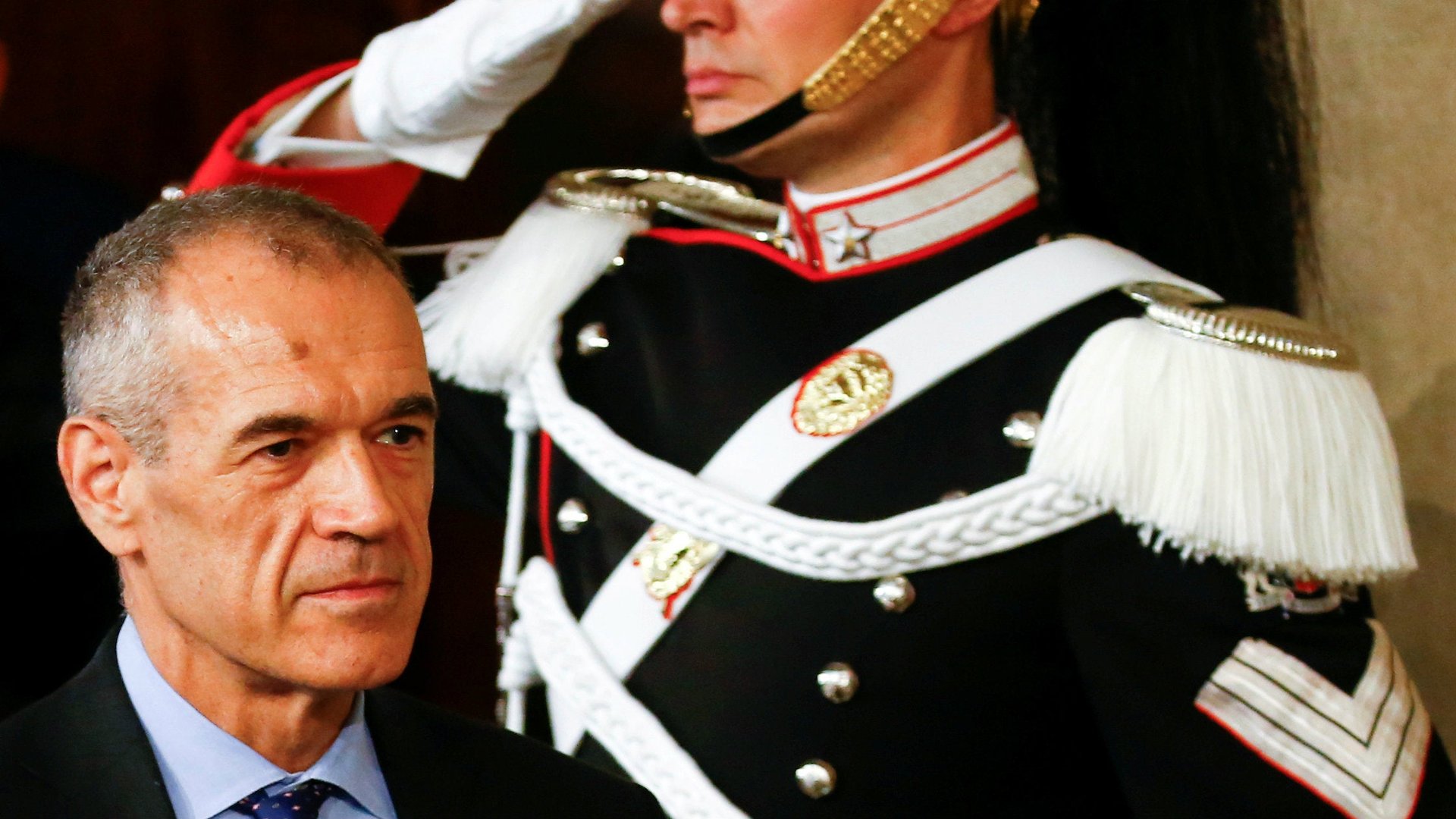Italy’s interim prime minister is a former IMF official nicknamed “Mr. Scissors”
It has been 85 days since Italy’s general election, and while just over a week ago the two winning populist parties looked tantalizingly close to forming a government, that plan has fallen apart again over who should be finance minister.


It has been 85 days since Italy’s general election, and while just over a week ago the two winning populist parties looked tantalizingly close to forming a government, that plan has fallen apart again over who should be finance minister.
President Sergio Mattarella rejected the choice of the Five Star Movement and League to have the euroskeptic Paolo Savona serve as finance minister, and the populist parties then said they wouldn’t continue their efforts to form a government. This has left the euro zone’s third-largest—but persistently weak—economy without a functioning government.
Now, Mattarella has named Carlo Cottarelli as interim prime minister. The former International Monetary Fund official been charged with establishing a neutral technocratic cabinet, and then holding new elections in early 2019.
Who is Carlo Cottarelli?
The 64-year-old, a former IMF senior official, has been nicknamed “Mr. Scissors,” because he was known for making cuts to public spending. For about five years, until October 2013, Cottarelli served as the director of the IMF’s fiscal affairs department. He joined the IMF back in 1988 and at times served as deputy director both in the European department and the strategy, policy, and review department.
Cottarelli studied at the University of Siena and the London School of Economics before joining the research department of the Bank of Italy for six years until 1987. Before going to the IMF, Cottarelli oversaw economic research at ENI, a major Italian energy company.
Since leaving the IMF, Cottarelli has held several positions, one of which earned him another nickname—Mr. Spending Review. In late 2013, the government of Enrico Letta made Cottarelli the extraordinary commissioner for the Spending Review, which meant looking for ways to reduce waste in public finances. Shortly after, Matteo Renzi took over as prime minister and Cottarelli found his suggestions largely ignored.
Reuters reported that the 72-page review, which looked at everything from disability benefits to policing, was unpublished and not being followed. Cottarelli’s efforts were frustrated by powerful political lobbies and inefficient bureaucracy. The economist cut this job short to return to the IMF, admitting in an interview (link in Italian) that at times he ended up shut out of the bureaucratic world in Rome, where everyone seemed to know each other and he wasn’t part of the inner circle.
Cottarelli left the IMF again last year to be the director of the Public Accounts Observatory at the Catholic University of Milan. Just 10 days ago, he spoke to Bloomberg (video) about the policies being proposed by the coalition of Five Star and League. He described some of them as “very controversial” and “worrisome,” particularly the idea that Italy’s budget deficit needed to increase. This approach would clash with European Union laws on budget deficits.
The parties’ most expensive proposals were to introduce a basic income for the poor and a new, lower flat tax. Cottarelli also said EU accounting rules were unlikely to change, something the coalition was pushing for. He supported, however, their proposals that including fighting bureaucracy and corruption, and speeding up legal proceedings. Cottarelli said the slowness of the legal system was one of the reasons foreign companies were reluctant to invest in Italy. He also said in the interview that he believed the League and Five Star would form a government.
Now, he’s returning to government charged with the hard task of pushing through a budget and forming a working caretaker government until new elections can be held. If his plan is rejected, new elections could be forced in just a few months.